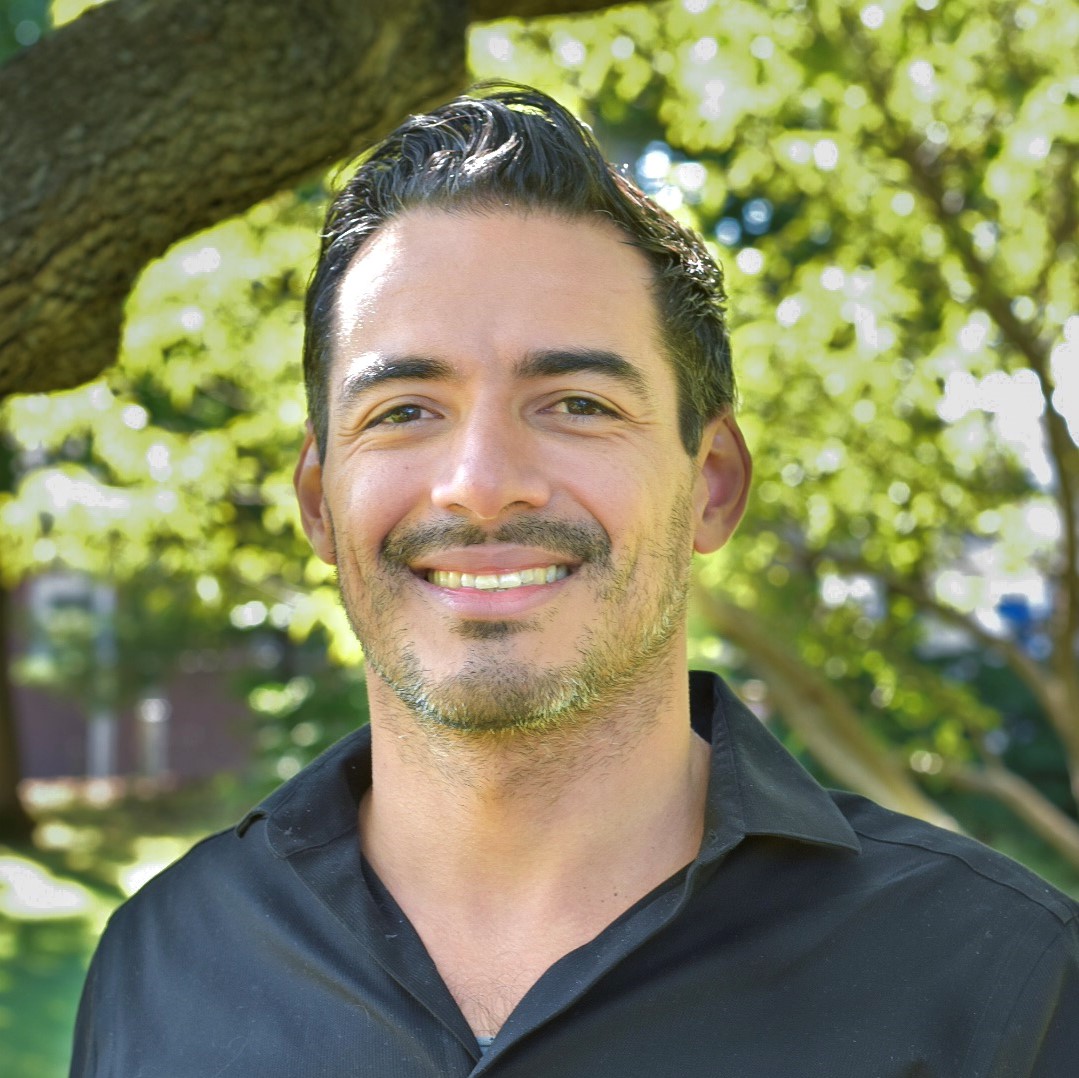Acceptance and Commitment Therapy (ACT) for Children, Adolescents, and Parents: Shaping Psychological Flexibility
Acceptance and Commitment Therapy (ACT) for Children, Adolescents, and Parents: Shaping Psychological FlexibilityAcceptance and Commitment Therapy (ACT) for Children, Adolescents, and Parents: Shaping Psychological Flexibility
Terapia de Aceptación y Compromiso (ACT) para Niños, Adolescentes, y Padres; Moldeando la Flexibilidad Psicológica
*Taller impartido en inglés. Habrá traducción simultánea al español disponible.*


Carlos Rivera, Ph.D.
Sunday, June 5, 2022 - 8:00 a.m. to 12:00 p.m. UTC/GMT -7 (Pacific Daylight Time)
Children and adolescents who struggle with avoidance-based disorders need extra support to develop effective and flexible behavior that helps them build lives that they value. This workshop will provide an overview of ACT for children and adolescents with a focus on the DNA-V model to support the development of psychological flexibility. Participants will learn how to shape perspective-taking skills and discovery behavior that will support trial and error learning to encourage optimal adaptation and coping with a variety of different contexts. The presenter will provide opportunities for skills practice through small groups activities and role plays. Specific attention will be paid to internalizing versus externalizing disorders and developmental issues.
Los niños y adolescentes que luchan con trastornos basados en la evitación necesitan un apoyo adicional para desarrollar un comportamiento eficaz y flexible que que les ayude a construir una vida que valoren. Este taller proporcionará una una visión general de ACT para niños y adolescentes con un enfoque en el modelo DNA-V para apoyar el desarrollo de la flexibilidad psicológica. Los participantes aprenderán a formar habilidades de toma de perspectiva y comportamiento de descubrimiento que que apoyen el aprendizaje por ensayo y error para fomentar la adaptación y el afrontamiento óptimo en una variedad de contextos diferentes. Los presentadores ofrecerán oportunidades para practicar las habilidades a través de actividades en grupos pequeños y juegos de roles. Se prestará especial atención a los trastornos de interiorización y exteriorización y los problemas de desarrollo.
About Lisa Coyne, Ph.D.:
Dr. Coyne is the Founder and Senior Clinical Consultant of the McLean OCD Institute for Children and Adolescents at McLean Hospital and is an Assistant Professor at Harvard Medical School. She is the Founder and Executive Director of the New England Center for OCD and Anxiety (NECOA) and is Past President of the Association of Contextual Behavioral Science (ACBS). She is member of the Clinical and Scientific Advisory Board and is on the Faculty of the Behavior Therapy Training Institute (BTTI) of the International OCD Foundation (IOCDF). She is also a licensed psychologist, a peer-reviewed ACT trainer, and author. She has authored multiple articles and chapters on ACT with children and adolescents and is a co-author of the books Acceptance and Commitment Therapy: The Clinician’s Guide for Supporting Parents (Elsevier), and The Joy of Parenting (New Harbinger). Her new books, Stuff That’s Loud: A Teen’s Guide to Unspiralling When OCD Gets Noisy (New Harbinger & Little Brown), Stop Avoiding Stuff: 25 Microskills to Face Your Fears and Do It Anyway, were published in 2020.
About Carlos Rivera, Ph.D.:
Carlos E. Rivera Villegas, Ph.D. is a Clinical Psychologist and the Director of The New England Center for OCD and Anxiety, New York. His role includes providing individual, family, and group therapy to youth, adults, and parents; supervising students in training; and developing training programs for individuals and clinicians. Dr. Rivera Villegas specializes in the treatment of OCD and anxiety and related disorders such as Acceptance and Commitment Therapy (ACT) and Exposure and Response Prevention (ERP). His area of clinical and research interests include the development of acceptance- and mindfulness-based therapies, as well as their adaptation and dissemination to Spanish Speaking communities. Dr. Rivera Villegas completed his Ph.D. at Suffolk University in Boston and his clinical internship at Harvard Medical School/Cambridge Health Alliance. He has also worked and trained at places including The Child and Adolescent OCD Institute at McLean Hospital, The Center for Anxiety and Related Disorders at Boston University, and Boston Children’s Hospital. He is a member of the Association for Contextual Behavioral Science (ACBS), the National Latinx Psychological Association (NLPA), and the Massachusetts Psychological Association (MPA). He has worked with the Latinx communities for over the past fifteen years.
Learning Objectives:
Following this workshop participants will be able to:
- Describe a contextual behavioral approach to avoidance-based disorders of childhood
- Engage clients and their caregivers in effective rationales for treatment, based on a psychological flexibility paradigm
- Develop a therapeutic relationship characterized by acceptance, values, compassion and commitment, that supports the client in engaging in process-based contextual behavioral treatment
- Shape curiosity, willingness, flexibility, and valuing in children, teens, and parents
- Engage clients using valuing as action and direction to “contextualise” discovery behavior and place approach-based tasks under appetitive control
- Engage in useful discussion around developmentally sensitive ways to engage children, teens, and parents in treatment
- Prepare and utilize the process of a functional behavioural assessment and case conceptualization to develop a collaborative treatment plan with clients
- Use clinical RFT methods to enhance tracking and contact with contingencies to usefully explore discovery behavior
- Use clinical RFT methods to foster flexible perspective-taking to enhance engagement in treatment and promote functional senses of self
- Describe the DNA-V model and the three functional classes of behavior it addresses
Después de este taller, los participantes podrán:
- Describir un enfoque conductual-contextual para los trastornos basados en la evitación de la infancia
- Involucrar a los clientes y a sus cuidadores en la justificación efectiva del tratamiento basado en un paradigma de flexibilidad psicológica
- Desarrollar una relación terapéutica caracterizada por la aceptación, valores, compasión, y compromiso, que apoye al cliente en la participación del tratamiento conductual-contextual basado en el proceso
- Formar la curiosidad, la voluntad, la flexibilidad y la valoración en niños, adolescentes y los padres
- Involucrar a los clientes utilizando la valoración como acción y dirección para "contextualizar" la conducta de descubrimiento y poner las tareas de aproximación bajo control apetitivo
- Participar en un debate útil sobre las formas de involucrar a los niños, adolescentes y padres en el tratamiento, teniendo en cuenta su desarrollo
- Preparar y utilizar el proceso de una evaluación y conceptualización conductual-funcional del caso para desarrollar un plan de tratamiento colaborativo con los clientes
- Utilizar métodos clínicos de RFT para mejorar el seguimiento y el contacto con contingencias para explorar útilmente la conducta de descubrimiento
- Utilizar los métodos clínicos de RFT para fomentar la toma de perspectiva flexible con el fín de mejorar un compromiso en el tratamiento y promover sentidos funcionales del yo
- Describir el modelo DNA-V y las tres clases funcionales de comportamiento que este aborda
